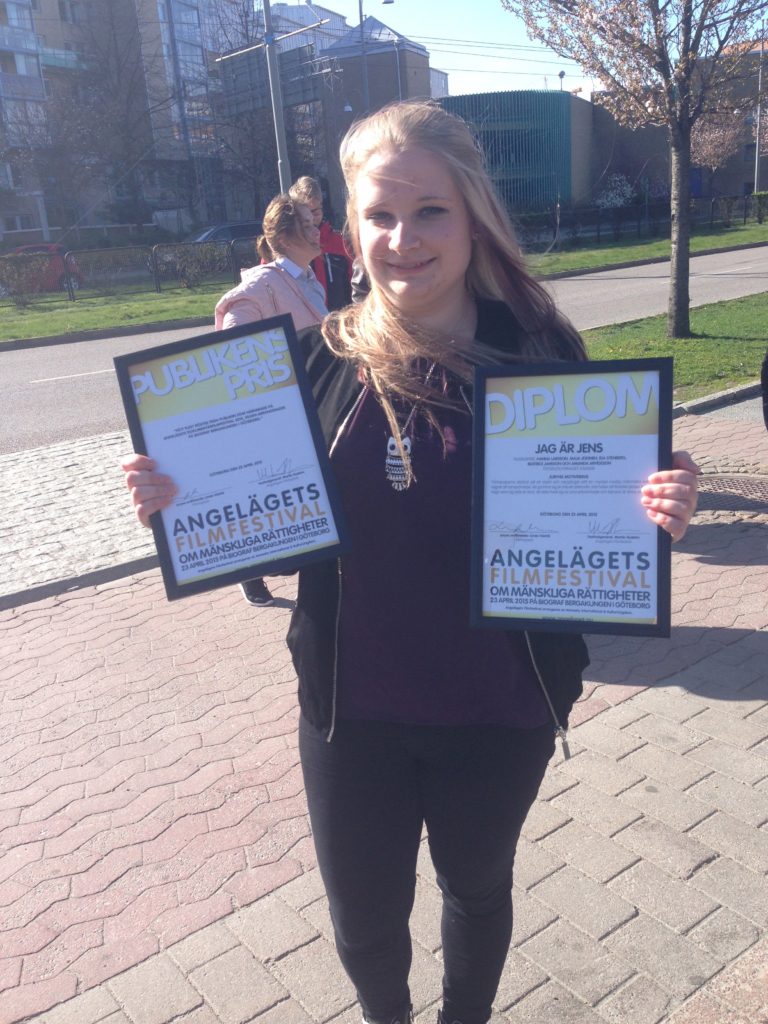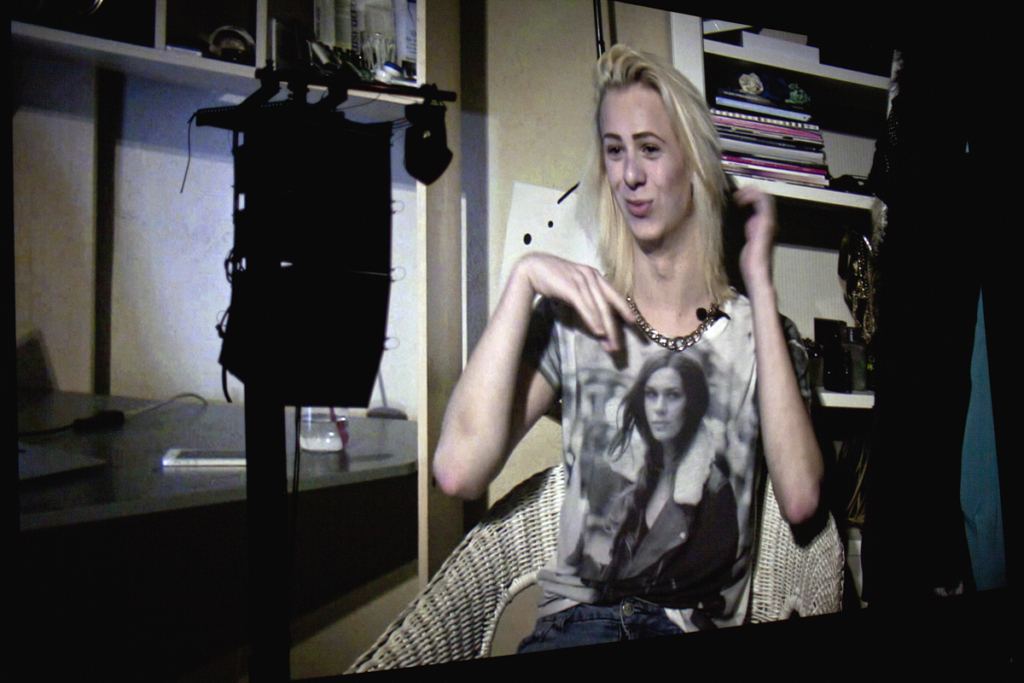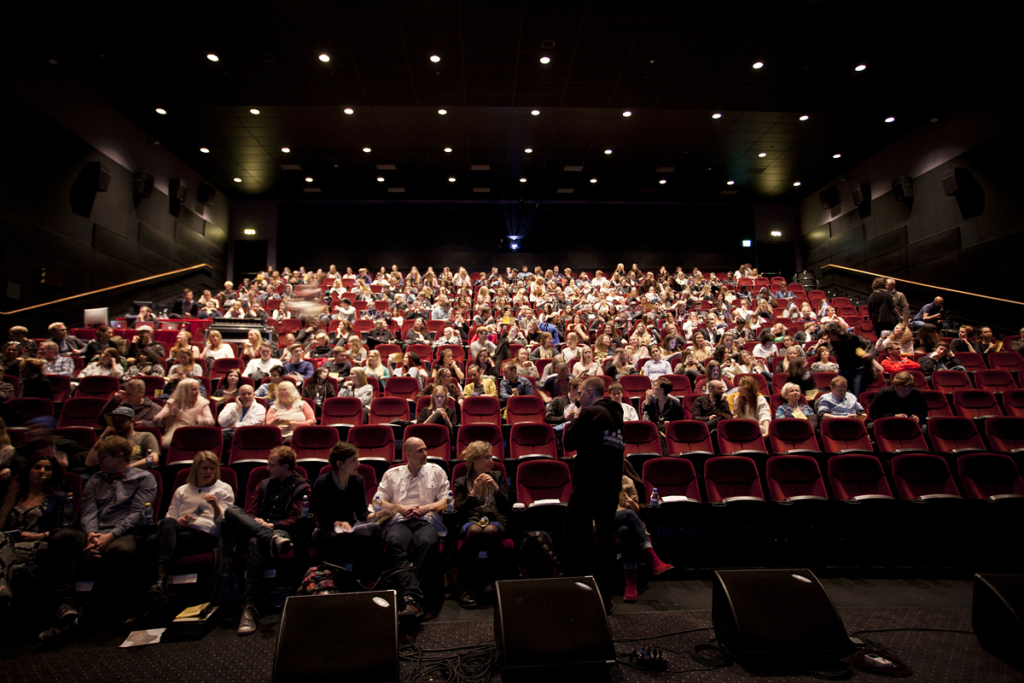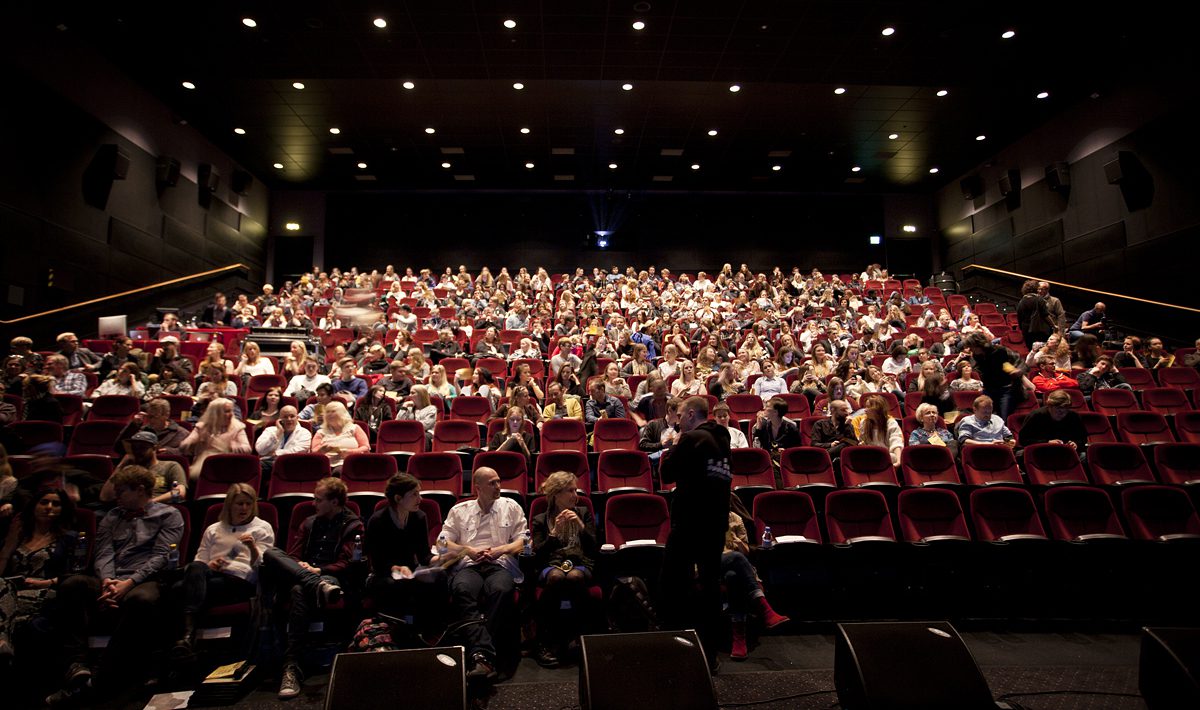Amnesty Sweden runs the largest human rights documentary film festival for and by young filmmakers in Sweden. On the festival’s 10th anniversary in April, over 300 people attended the screening and more than 3,000 teachers are using the movies as teaching materials.
Hanna Larson, this year’s 19 year-old winner of the Audience Prize for her film ‘My name is Jens’ (Jag är Jens), tells us about her experience at the festival.

Hanna Larson is a 19 year-old student. She studies Radio at the Östersjögymnasiet secondary school, and she is also the winner of the 2015 Human Rights Documentary Film Festival (‘Angeläget Filmfestival’ in Swedish).
“My school participates in this documentary film festival every year”, she explains. “At the beginning, I wasn’t sure about what type of movie I wanted to make. But then I remembered this really great video I saw on Facebook earlier this year about a trans girl called Jens. She has a YouTube channel where she makes videos about her life.”
Hanna and her team didn’t know Jens personally, but they knew which school she went to so they decided to contact her.
“The moment we met Jens, we knew the movie would be great. It just felt so right to make a movie about her, she is such an amazing person, and we knew she’d be great on camera because she is so open and so honest about her life. We felt right away that we had met the perfect person to make a movie about!” says Hanna with enthusiasm.

‘My name is Jens’ is divided into two parts: “We wanted Jens to tell her story with her own words, so the first section of the movie is basically an interview,” explains Hanna. “The second part is all about her transformation. We filmed her putting make up on, trying new clothes. We wanted to show the before and after: From the person she was to the person she is today.”
‘My name is Jens’ was shown alongside six other movies at the festival in April, in the city of Gothenburg.
“The aim of this festival is to encourage young people to reach out to other young people with important subjects in contemporary society and issues related to human rights,” says Martin Rydeh, Human Rights Education Project Manager at Amnesty Sweden and founder of the Angeläget Filmfestival partnering with KulturUngdom (CultureYouth).
“The people participating in the project are 17 to 19 year old students in the last year of their school who take film or media as a subject. They are not beginners, but they are definitely not professionals.”
For this year’s film festival, a total of 83 documentaries were submitted by young filmmakers from all across Sweden. Of these, 25 were selected by a nominated group of five people, some of them from Amnesty and some from the film industry. A jury, composed of four people, then chose the seven winning films to be shown at the festival. This year, the jury included a film director, a scriptwriter, the previous winner of the Angeläget Film Festival and a representative from Amnesty Sweden.
Finally, the audience chose the ultimate Audience Prize winner from all the films screened at the festival. The festival was mainly composed of young filmmakers, as well as school students, teachers, and representatives from other organizations.
“The young filmmakers in the audience are very involved emotionally, as they don’t know whether their film will be screened or not. It’s a bit like the Oscars,” says Martin with a smile. “This year we had over 300 people attending the festival. It was just magical.”

Hanna shares Martin’s enthusiasm: “None of the people in my team have specialized in film. That’s why it’s so amazing we got an award! We just wanted to make a movie that shows how trans people are normal people. We wanted to change peoples’ minds and encourage them to be more accepting.”
“We have received so much interest about the festival,” says Martin with pride. “For many years now, teachers have asked for the movies we show at the festival so they can screen them in their classrooms. We have sent out around 3,000 DVDs to 3,000 different teachers!”
“I think the appeal of the festival’s movies is that young people both produce and consume the content. I don’t know any other teaching materials in Sweden where young people are both producers and consumers of their own content.”
The festival’s success has encouraged Martin to take the festival one step forward: Starting next year, two of the movies will be shown at the Gothenburg Film Festival, the largest film festival in the Nordic countries.



